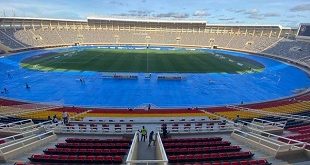
Experts combine number crunching and research to predict
COVER STORY | THE INDEPENDENT | Many football lovers hope an African team will win the men’s 2022 Fifa World Cup. The world has been waiting for this since the great Brazilian player Pelé predicted (in the 1970s) that an African country would win before the year 2000. That didn’t happen, but it didn’t stop Patrice Motsepe, president of the Confederation of African Football, from saying (in 2021): “An African team must win the World Cup in the near future”.
But is it realistic to keep hoping? Are African teams doing what they need to compete with the world’s best, making it just a matter of time? Or is an African win possible if countries do something different? Or is an African win simply impossible, the stuff of false hope?
Prof. Matthew Andrews, the Edward S. Mason Senior Lecturer in International Development, Harvard Kennedy SchoolI tackles this multi-part question in a recent research paper that draws on various data sources (including the World Football Elo ratings database) to compare competitive records in the 2010s.
Prof. Andrews paper looks at top African contenders (Algeria, Cameroon, Côte d’Ivoire, Egypt, Ghana, Morocco, Nigeria, Senegal, Tunisia) and recent World Cup finalists and semi-finalists (Belgium, Brazil, Croatia, England, France, Germany, Spain) to see if African countries are really competing with world soccer’s best. And if not, why?
Andrews finds a significant competitive gap between African countries and the world’s best, which seems to have grown over recent generations. He says this gap is not encouraging for those hoping for an African World Cup win.
The study
His analysis captures two dimensions of each country’s competitive record: how they compete as a participant (how much they play, who they play against and in which tournaments) and how they compete as a rival (how often they win, especially against elite teams and in high profile tournaments).
Unfortunately, the records of African countries lagged behind those of top nations on both dimensions. Africa’s best played lower levels of competition and won less often. Instead of competing with the world’s best, Africa’s top countries seem better matched to a country like Greece, which has played in three World Cup final stages and made the last 16 in 2014. This is an impressive record, but few people outside Greece consider the country a potential World Cup winner. So why do we think African countries should carry such hope?
Andrews found that Africa’s top countries’ competitive records were more like current World Cup contenders in prior decades (even in the 1970s, when Pelé made his prediction). Tunisia and France had very similar participant and rival scores in the 1970s, for instance, but France now scores much higher than Tunisia on both dimensions. This suggests that Africa’s best competitors have become relatively less competitive over time.
He says such observation is surprising when one considers how much has been done to expand Africa’s role in world soccer since the 1970s. Countries on the continent have gained more access to World Cup final stages and they compete in more intra-continental competition than ever before (with an expanded Africa Cup of Nations, in particular). In addition, Africa’s players have proved their talent and had increased exposure to the best of world soccer. Over 200 Africans currently ply their trade in Europe’s big five leagues.
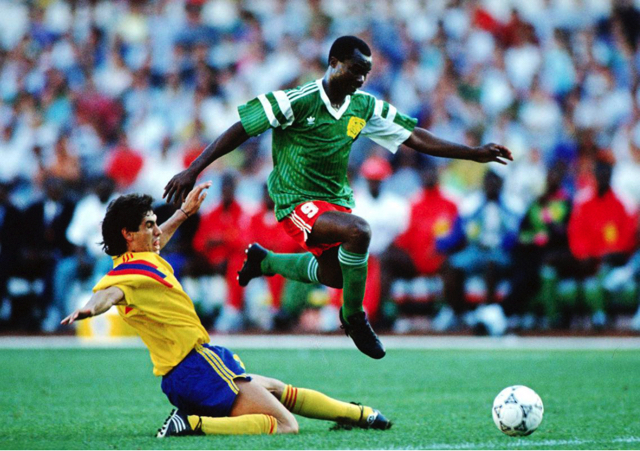
Why are African teams less competitive?
Regardless of these advances, Andrews believes African countries have become less competitive because they do not compete regularly with the world’s best nations. Less than 20% of Africa’s top countries’ matches are against elite contenders. The World Cup semi-finalists and finalists play between 30% and 60% of their annual matches against elite nations. It is unsurprising that African countries also win far fewer of these high-level matches: Nigeria took only 30% of the points in these matches in the 2010s – England took 68%.
Andrews says studies from various research papers tell us that teams become more competitive when they “play up” against top opposition. “Playing down” against weak opposition makes them less competitive. This is because teams learn whenever they play, about the on-field and off-field strategies and technologies of their opponents. Top national teams have the most advanced technologies, many of which are cutting edge and have not yet been shared. The only way to learn about them is through regular competition.
Africa’s top soccer playing nations do not compete regularly with top nations and are thus not able to learn these technologies. They may dominate continental tournaments, therefore, but will ultimately lack the knowhow needed to really compete – consistently and regularly – with the world’s best.
World Cup chances
Prof. Andrews believes that African countries can win the odd game against a global power (and we have seen such results over time).
“But the world champion must overcome at least five elite opponents (and draw against two more) in the next month. None of the African contenders in this year’s World Cup has won five matches against elite opposition in the last five years,” he says.
According to him, arguably Cameroon’s best result against elite non-African opponents since 2017 was a friendly draw against Japan. Ghana managed two friendly draws against Chile and Japan. Morocco had two friendly wins against Chile and Serbia. Senegal had a friendly draw against Brazil. Tunisia’s best were friendly wins against Chile and Japan and a friendly draw against Portugal. Of course, friendlies are not the same as competitive matches.
So, sadly, he says, he doesn’t think an African team will win this year’s World Cup. But I do think an African team could win in future – if Africa’s best play up against better teams and learn how to compete at that level.
What it would take
He says this would require a decision by Africa’s top nations to play their B teams in African competitions and schedule more matches against high level opponents for their A teams.
“I would expect the African teams to lose more of these games than they win – at least at first – but would bet they win more and more over time, enhancing their chances of becoming the team that can beat anyone in the 2026 or 2030 World Cups. I would also bet that African countries that choose to keep playing down will never win the World Cup,” he says.
He adds: “Africans should hold onto the hope of winning, but ensure they do the work needed to build teams and systems that make this hope a reality. As former Italian player turned manager Antonio Conte says: `To use the verb ‘to win’ is more simple than winning because to win you have to build something important, be solid … Then you’re ready to win. Otherwise you have to hope’.”
Prof. Andrews says he is one of the people who hope Africa will win the World Cup. He says the countries of Africa have amazing potential – on the soccer field and off it – but many Africans need to see that potential realised.
“There is no better place to demonstrate what the continent’s people can do than the global soccer arena. But more work is needed for this to happen,” he says.
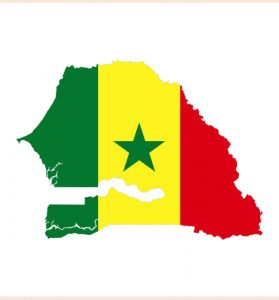 Senegal and Cameroon carry Africa’s best hopes
Senegal and Cameroon carry Africa’s best hopes
Prof. Wycliffe W. Njororai Simiyu, a Health and Kinesiology expert at University of Texas at Tyler, takes a deeper look at the teams that will represent Africa when the men’s Fifa World Cup kicks off on 20 November in Qatar.
Africa is allocated five spots in the month-long final stage of this elite competition, held every four years. Cameroon, Ghana, Morocco, Senegal and Tunisia secured their places after a preliminary four-team round robin competition followed by a knockout phase.
“Once again, many pundits are wondering if an African team can win it all at this unconventionally scheduled World Cup (it’s usually held mid-year), “ he says, “No African team has ever qualified for the semi-finals. Only Senegal, Cameroon and Ghana have reached the quarter-final stage before.”
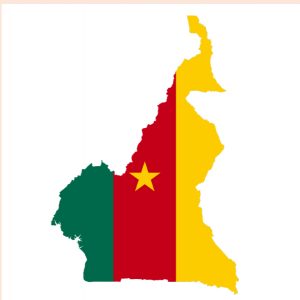 He says it’s not lost on the African teams that they carry the burden of history to break the proverbial glass ceiling. Many would argue that 2022 is the time to change Africa’s World Cup story. The continent has always promised a great deal in the international showcase but delivered very little. Reasons for this include poor preparation, internal controversies, a bad disciplinary record, technical and tactical errors at crucial moments and recruiting foreign coaches at the last minute.
He says it’s not lost on the African teams that they carry the burden of history to break the proverbial glass ceiling. Many would argue that 2022 is the time to change Africa’s World Cup story. The continent has always promised a great deal in the international showcase but delivered very little. Reasons for this include poor preparation, internal controversies, a bad disciplinary record, technical and tactical errors at crucial moments and recruiting foreign coaches at the last minute.
This time, however, there’s been stability in the coaching ranks and for the first time all teams will be led by home-grown coaches on the technical bench.
“Looking at the pedigree of the African teams, and their respective opponents, Cameroon and Senegal stand the best chance to qualify for the second round and possibly beyond,” he says. Then he offers a closer look at the teams’ chances.
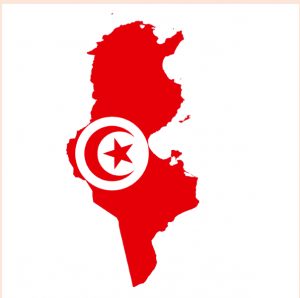 Tunisia
Tunisia
Tunisia make their sixth World Cup appearance, having featured in 1978, 1998, 2002, 2006 and 2018. The Eagles of Carthage topped their second round qualification group. In the third round, where the 10 African group winners faced off in March over two legs, home and away, Tunisia scraped past Mali on goal aggregate. Qualification still saw a change in manager, following a quarter-final exit in the 2021 Africa Cup of Nations.
New coach Jalel Kadri guided his country through the play-off. Wahbi Khazri was Tunisia’s top scorer in qualification and will be relied on if Tunisia is to survive the star-studded sides in Group D (France, Australia and Denmark). It will need a major upset for them to progress to the second round, given their opposition’s pedigree.
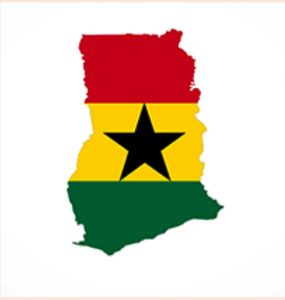 Ghana
Ghana
Ghana makes a long-awaited return to the World Cup having previously qualified in 2006, 2010 and 2014. In 2010 they became only the third African team to reach the quarter-finals. The Black Stars booked their ticket in the final stages after topping Group G in the second round of qualification, beating South Africa, Ethiopia and Zimbabwe to set up a third-round play-off against Group C winners and fierce rivals Nigeria, whom they beat in a dramatic match. The Black Stars will be led by new coach and former Ghana international Otto Addo, who was in charge during the play-off win. He featured in Ghana’s first World Cup appearance in 2006. The team will be up against Portugal, the Republic of Korea, and Uruguay in Group H. A rematch with Uruguay is a painful reminder of Uruguay’s handball that stopped a goal-bound shot, leading to Ghana’s elimination in 2010.
Ghana has harnessed several top overseas-born dual nationals to strengthen the squad. There are quality players but there’s also a lack of international experience and team cohesion, given the short window leading to the tournament. The team will revolve around the Ayew brothers in attack and Thomas Partey in midfield. Although this team looks good on individual talents, building a collective understanding and cohesion defensively is a challenge the coach has to deal with to stand any chance of progressing to the second round.
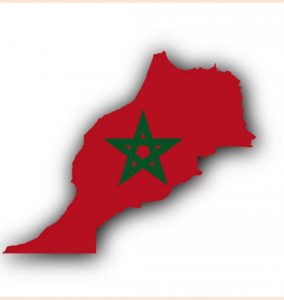 Morocco
Morocco
Morocco is returning to the World Cup after faring poorly in the 2018 edition. They have appeared in 1970, 1986, 1994, 1998 and 2018. This team should look to their 1986 squad for inspiration. They led their pool and were the first African team to qualify for the second round. Now coached by Walid Regragui, Morocco won all six matches in their group against Guinea-Bissau, Guinea and Sudan, scoring 20 goals and conceding only one. They then eliminated Democratic Republic of the Congo in the third round of the qualifiers.
Morocco is in Group F and will face off with 2018 runners-up Croatia, Belgium and Canada. Morocco can count on several star players – like Hakim Ziyech, Achraf Hakimi, Romain Saïss and Yassine Bounou. Their talented team face Croatia in their opening match. It’s a game where they must aim to pick up at least a point before facing the highly rated Belgium, concluding with a must-win game against Canada to have a chance of progressing to the second round.
 Cameroon
Cameroon
Cameroon’s Indomitable Lions have been consistently representing Africa at the World Cup, appearing in 1982, 1990, 1994, 1998, 2002, 2010, and 2014. They eliminated Mozambique, Malawi and Ivory Coast before setting up a playoff against Algeria, whom they beat sensationally with a goal in the 124th minute. Under legendary coach Rigobert Song, who appeared in four World Cups as a player, Cameroon will arrive in Qatar with some top-level talent spread around Europe, such as André-Frank Zambo Anguissa, André Onana and Eric Maxim Choupo-Moting. There are also several potential breakout stars on the team.
Cameroon’s strength lies in its solid midfield play and potent attack, with a physically imposing style of play. In 1990, Cameroon became the first African team to make the quarter-finals. This year they face Brazil, Switzerland and Serbia. Good results against Serbia and Switzerland can propel them to the second round and even further.
 Senegal
Senegal
Senegal shocked the footballing world when they brought down France in their 2002 World Cup debut and went on to qualify for the quarter-finals, the second African team to do so. The Lions of Teranga must be looking forward to their third cup under coach Aliou Cissé, who captained the 2002 team. In 2018, they fell short on disciplinary grounds. Hopefully they learnt from that bitter experience.
Reigning Africa Cup of Nations champions, Senegal breezed through the group stage unbeaten to set up a playoff with rivals Egypt, whom they faced in the Africa Cup of Nations final. On both occasions, Sadio Mané scored the winning penalty in nerve-jangling shootouts. In Qatar they will look to at least match their memorable quarter-final showing in 2002. Ranked 18th in the world, Senegal face Netherlands, Qatar and Ecuador in a group that should hold no fears for a strong side with good experience down its spine. The team sports the likes of Édouard Mendy, captain Kalidou Koulibaly, Idrissa Gueye, Ismaïla Sarr and the attacker Mané.
The downside is that Mané, runner-up for the Ballon d’Or player of the year award, might not participate due to an injury. But on a good day the Lions of Teranga present Africa’s best opportunity to advance in the World Cup. The team has many individual talents who have played together often and are characterised by a strong team spirit and never-say-die attitude.
****
Source: Story based on articles from The conversation
 The Independent Uganda: You get the Truth we Pay the Price
The Independent Uganda: You get the Truth we Pay the Price

